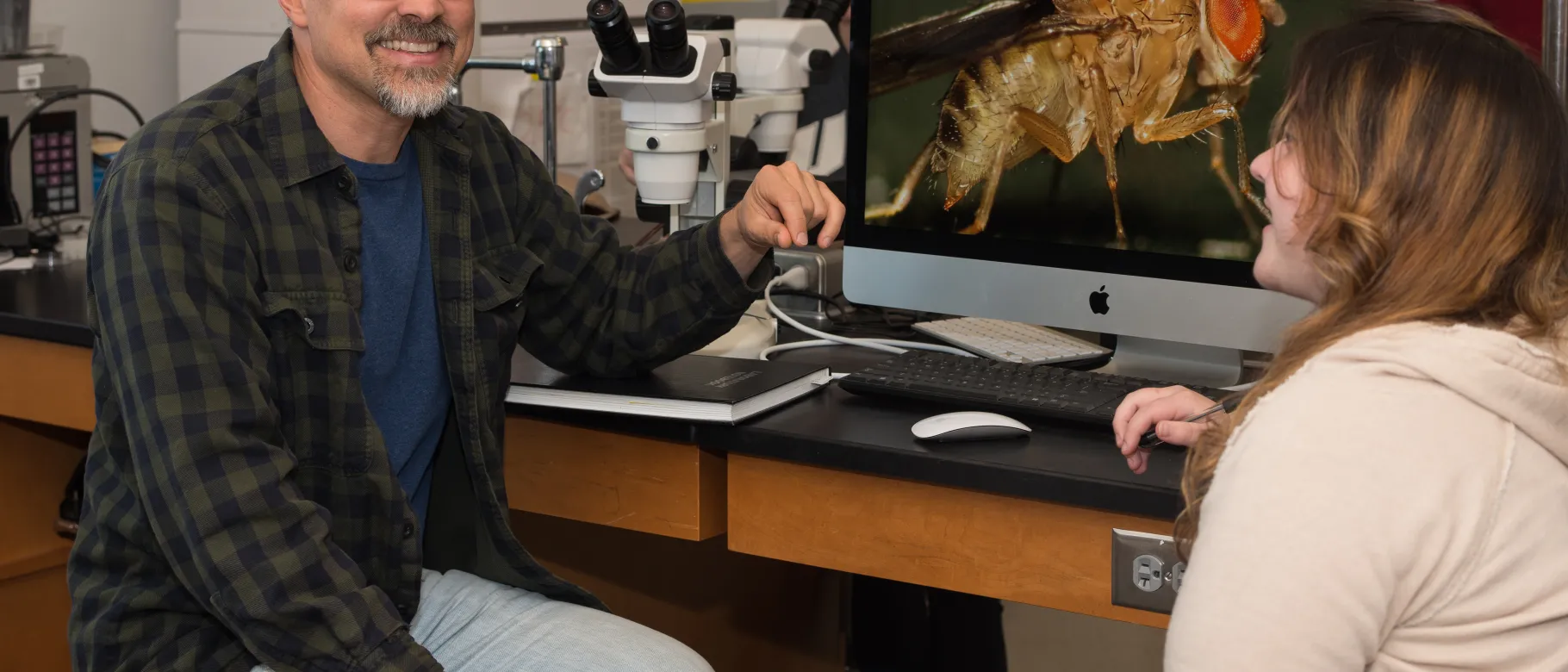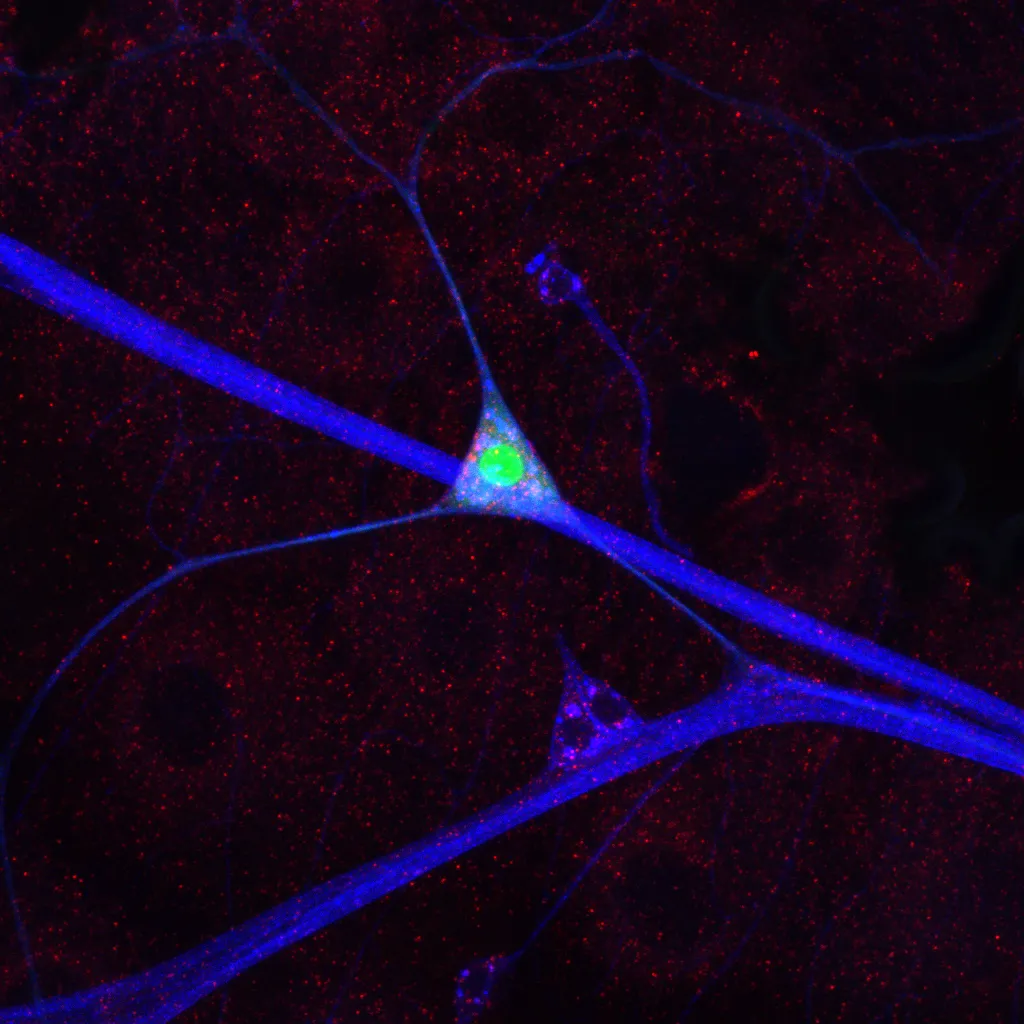Ganter Laboratory study published in pain research journal

Research by the Ganter Laboratory was recently published in Molecular Pain, a peer-reviewed medical journal covering all aspects of pain research.
The article discussed work by the Ganter Lab on the Bone Morphogenetic Protein (BMP) pathway, focusing specifically on a BMP called Glass Bottom Boat and its receptor called Wishful Thinking. These proteins increase pain sensitivity after an injury. The study was designed to help elucidate some of the cellular and molecular mechanisms of chronic pain.
Using ultraviolet light to induce injury and relying on powerful fruit fly genetics, the Ganter Lab discovered more than a dozen such components of pain signaling. Because of the strong conservation between fruit flies and mammals at the genetic level, the team believes that components in the BMP pathway may be worthy of future investigation for the development of targeted treatments to alleviate chronic pain in humans.
The article was the result of thesis work by recent Medical Biology alumna and Master’s in Biological Sciences graduate Kayla Gjelsvik, B.S. ’15, M.S. ’16.
Another alumnus of the Ganter Laboratory, Taylor Follansbee, B.S. ’13, M.S. ’15 also contributed to the study.
Gjelsvik and Follansbee conducted their research under the guidance of Geoffrey Ganter, Ph.D., Department of Biology, College of Arts and Sciences.
The research was supported by grants from the National Institutes of Health to Ganter and to Ian Meng, Ph.D., professor of biomedical science in UNE’s College of Osteopathic Medicine.
